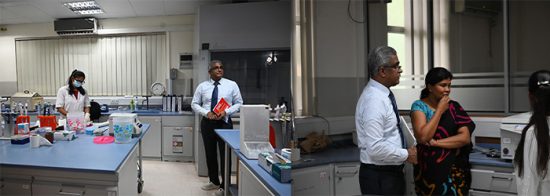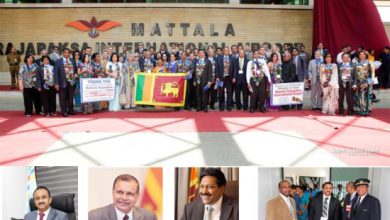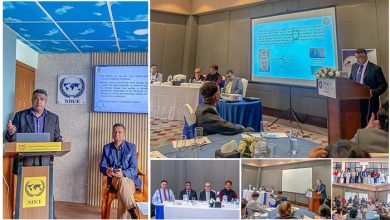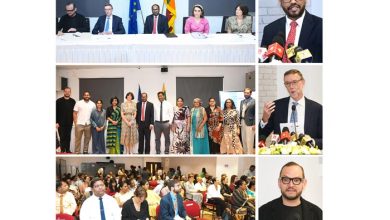Empowering Survivors Through DNA Evidence

Sexual and gender-based violence (SGBV) remains a pressing challenge in Sri Lanka, with over 2,200 reported cases of sexual harassment and nearly 130,000 instances of domestic violence recorded in 2024 alone — a significant rise since before the pandemic. In this landscape, the power of DNA evidence to secure justice for survivors has never been more critical.
To strengthen Sri Lanka’s forensic response, the Government Analyst Department (GAD) is undergoing a vital transformation through the ‘Ensuring Justice for Victim/Survivors of Sexual and Gender-Based Violence in Sri Lanka’ project. Funded by the Government of Canada and implemented by the United Nations Development Programme (UNDP), in partnership with UNFPA and the Sri Lankan government, this initiative aims to enhance the country’s DNA analysis capacity.
An internationally recognized expert, Dr. Neil Fernandopulle, Quality Assurance and Technical Manager at the Centre of Forensic Sciences in Ontario, Canada, is leading a four-month mission to assess current systems, technology, and infrastructure within the GAD. His recommendations will focus on improving efficiency, accuracy, and turnaround times for SGBV cases, which often suffer from lengthy backlogs — currently exceeding 4,000 cases.
Ms. Sandya Rajapaksa from the Government Analyst Department emphasized the importance of this intervention, stating,
“We are grateful for Dr. Fernandopulle’s support through UNDP in introducing efficient serology methods and revising Standard Operating Procedures to ensure uniformity and high-quality documentation, especially for sexual assault cases.”
The project also seeks to streamline coordination with law enforcement agencies by reducing unnecessary evidence submissions and focusing on critical forensic analysis. This strategy will not only reduce backlogs but also strengthen the credibility of forensic evidence in Sri Lanka’s courts.
Azusa Kubota, UNDP’s Resident Representative in Sri Lanka, highlighted,
“Strengthening forensic capacity is crucial for delivering timely, credible, and compassionate justice to survivors of sexual and gender-based violence. We are proud to support the Government Analyst Department in this vital system upgrade.”
Dr. Fernandopulle noted,
“DNA analysis is the ‘gold standard’ in forensic science. My work will include reviewing how DNA evidence is collected, tested, and reported, involving police, judiciary, and medical authorities to elevate Sri Lanka’s forensic standards to internationally recognized best practices.”
Ultimately, this initiative aims to empower survivors by transforming forensic science into a pillar of justice — providing them with the timely, accurate evidence needed to break the silence and secure accountability.






